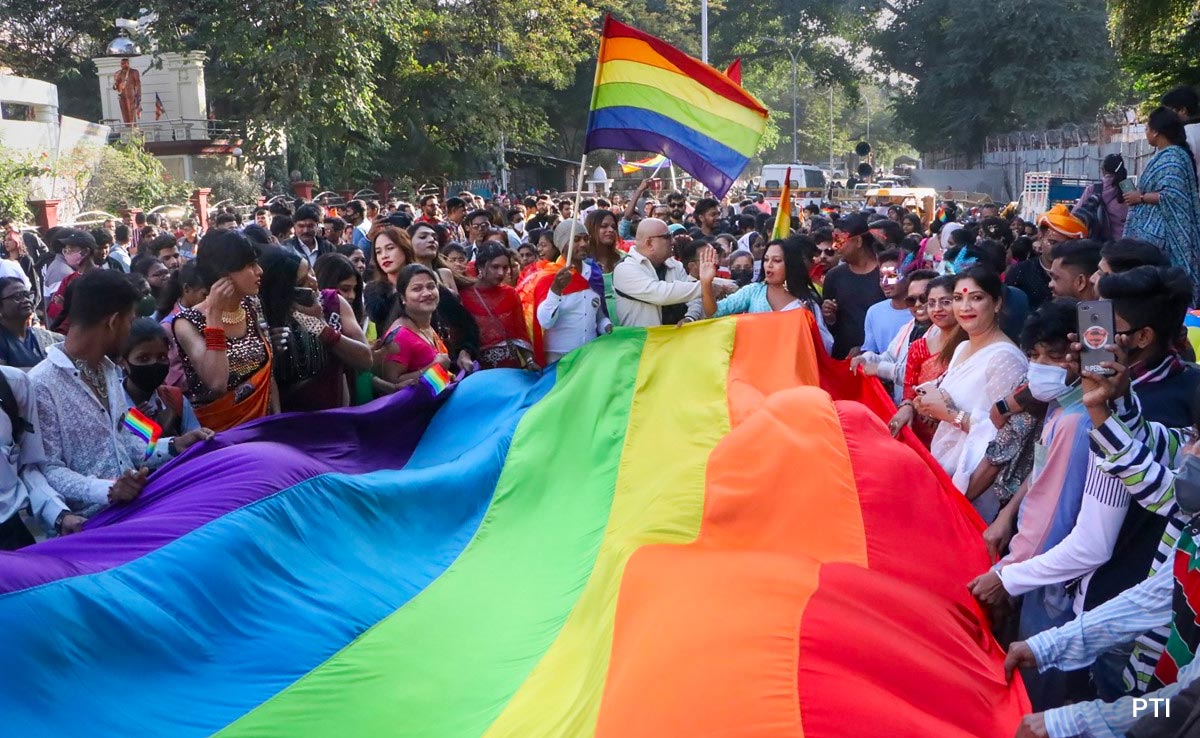The Supreme Court had delivered its verdict on October 17.
A petition has been filed in the Supreme Court seeking a review of its October 17 verdict in which it had refused to accord legal recognition to same-sex marriage. The petition states that the majority judgment acknowledged discrimination against queer couples but "turned them away with best wishes for the future".
The review peition by one of the petitioners, Udit Sood, has been filed with the Supreme Court registry.
"The Petitioners respectfully submit that this Court ought to review and correct its decision in... because the impugned judgment suffers from errors apparent on the face of the record and is self-contradictory and manifestly unjust," the review plea said.
It added that the majority judgment led by Justice S Ravindra Bhat, since retired, is "facially erroneous because it finds that the respondents (Centre and others) are violating the petitioners' fundamental rights through discrimination" but fails to end that discrimination.
On the majority view of Justices Bhat, Hima Kohli and PS Narasimha, the review petition said that they neutered the top court's jurisdiction.
"With respect, the majority judgment neuters this Court's jurisdiction, holding that while 'recognition' of discrimination and violation of the petitioners' fundamental rights 'is this court's obligation, falling within its remit', separation of powers prohibits this court from enjoining the discrimination or otherwise protecting those fundamental rights," the petition said.
It said there was an error apparent on the face of the record and an abdication of the duty entrusted to this court by the Constitution.
The petiton further said "to find that the petitioners are enduring discrimination, but then turn them away with best wishes for the future, conforms neither with this court's constitutional obligation towards queer Indians nor with the separation of powers contemplated in the Constitution."
It added, "The majority judgment warrants review because it summarily disregards the foregoing authority to make the chilling declaration that the Constitution of India guarantees no fundamental right to marry, found a family, or form a civil union."
The petition said the majority judgment is also self-contradictory in its understanding of 'marriage'.
"It acknowledges that the Special Marriage Act, 1954 (SMA) confers the 'status' of marriage, observing that the Act 'in fact created social status or facilitated the status of individuals in private fields' and that the Parliament 'has intervened and facilitated creation of social status (marriage) through SMA'," the plea said.
"Our constitution primarily tasks this court-not the respondents (Centre and others) - with upholding fundamental rights. 'This Court has no more important function than to preserve the inviolable fundamental rights of the people'," it said, referring to a 1963 verdict.
A five-judge constitution bench had, on October 17, refused to accord legal recognition to same-sex marriage, saying there was "no unqualified right" to marriage with the exception of those that are recognised by law.
The Constitution bench headed by Chief Justice DY Chandrachud had delivered four separate verdicts on a batch of 21 petitions seeking legal sanction for gay marriages.
All the five judges were unanimous in refusing to give legal backing to same-sex marriage under the Special Marriage Act and observed it is within Parliament's ambit to change the law for validating such union.
However, by a majority of 3:2, the top court held that the queer couples do not have the right of adoption.
In his verdict, the CJI passed a slew of directions to the Centre, states and Union Territories to ensure that the queer community is not discriminated against because of their gender identity or sexual orientation and also to take steps to sensitise the public about queer identity, including that it is natural and not a mental disorder.
Justice S Ravindra Bhat, since retired, who authored an 89-page judgment for himself and Justice Hima Kohli, had disagreed with certain conclusions arrived at by the CJI including on the applicability of adoption rules for queer couples and according recognition of right to civil union.
Justice PS Narasimha, in a separate verdict, had concurred with the views of Justice Bhat.
Referring to the statement made by the Centre during the hearing on the matter, Justice Bhat had said "...the Union shall set up a high-powered committee chaired by the Union Cabinet Secretary, to undertake a comprehensive examination of all relevant factors, especially including those outlined above. In the conduct of such exercise, the concerned representatives of all stakeholders, and views of all States and Union Territories shall be taken into account".
In his judgment, the CJI also recorded the assurance by Solicitor General Tushar Mehta that the Centre would constitute a committee chaired by the Cabinet Secretary for the purpose of defining and elucidating the scope of the entitlements of queer couples who are in union.
The petitioners, who had won a major legal battle in 2018 in the Supreme Court which decriminalised consensual gay sex, had moved the Supreme Court seeking validation of same-sex marriage and consequential reliefs such as rights to adoption, enrolment as parents in schools, opening of bank accounts and availing succession and insurance benefits.
(Except for the headline, this story has not been edited by NDTV staff and is published from a syndicated feed.)






Leave a Reply